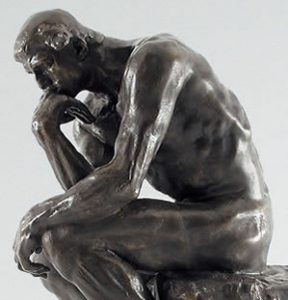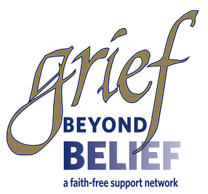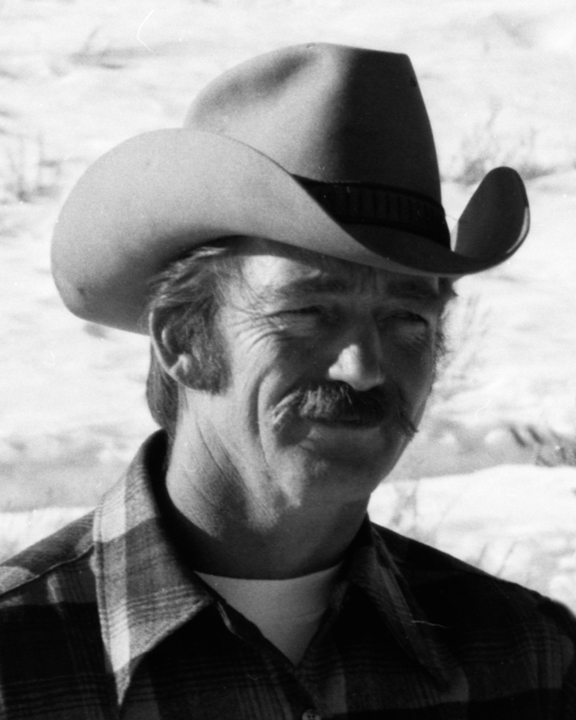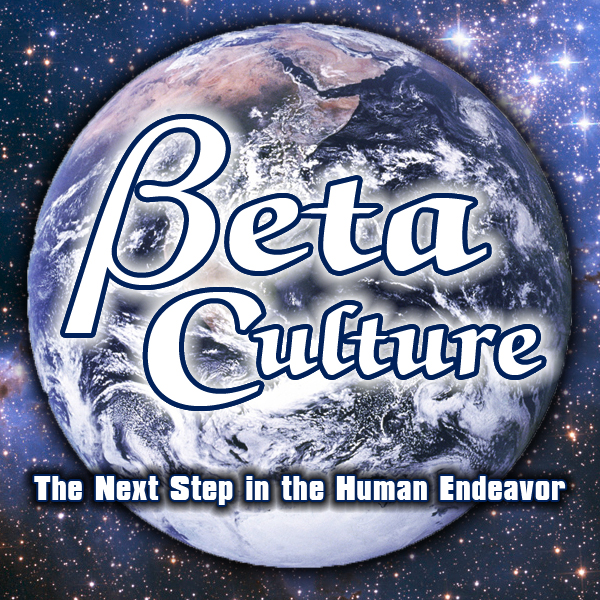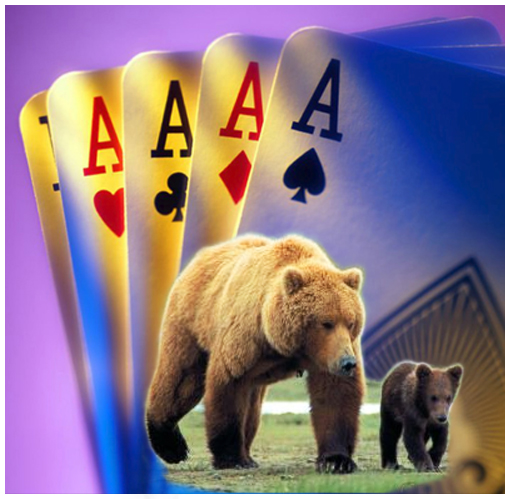 If you’re a long-time reader here, you may remember a couple of Beta-Culture-related posts from 2012 about The Book of Good Living. If not, it’s like this:
If you’re a long-time reader here, you may remember a couple of Beta-Culture-related posts from 2012 about The Book of Good Living. If not, it’s like this:
You know all that wisdom the Bible supposedly contains? The Talmud? The Koran? What if you could get wisdom about life without all the goddy freight mixed in? Without all the “GOD SAYS DO THIS, DO THAT, OR BURN IN HELL FOREVER!” Might not be a bad thing, huh?
The general model for where you get all the good advice is your parents, aunts and uncles and grandparents. Mom teaches you how to cross the street, dad teaches you how to handle tools, Paw Paw teaches you how to be gentle with the horses and dogs, they all teach you about how to live and work with others. But … with the best of intentions, mom and dad and those others don’t always have time to teach you all they know. And some of us have parents who don’t teach us ANY of the good stuff.
And how many times have you been aghast at someone, silently asking “You don’t know THAT?? How have you gotten through life?” So you know there’s a need for it.
So what if you and people like you could collaborate on a sourcebook of things you’d like to know, or would like others to know. Helpful, self-empowering stuff. Protective stuff. Stuff that helped you get through life, that you really might not get anywhere else. Because failing learning it from your parents, you sure as hell won’t get it from Ice Road Truckers, or Keeping Up With the Kardashians.
I actually had a friend set up a Wiki for it, but then I failed to do my part, the actual writing. The idea was to start doing it, enough to give people the idea, and then enlist other smart/wise people to add to it, until we had our own source-book (and if you use the word “bible” I will come over and chainsaw the legs off all your chairs) of good ideas for daily living.
I kept on and kept on thinking I’d start, but I always put it off. Because I wanted it to be PERFECT.
Two years passed.
Then, yesterday, I realized I could start it on Facebook. Imperfectly, but regularly, posting little tidbits that would go into it. I even gave it its own hashtag: #TheBookofGoodLiving.
So here’s some of it. Incomplete. Lumpy. Imperfect. But hey, it’s a start.
BTW, the “Added comments” sections are a great example of how this is supposed to work in the final form. Everybody adds in the good stuff they know. The thing evolves, grows, and eventually you have a useful handbook for daily living. It’s definitely not meant to be a “do it this way or else” thing, but rather something you could refer to in those areas where you lacked expertise. Eventually — assuming you buy into this “Let’s create our own culture” thing — you could even tell your kids “Let’s see what The Book of Good Living says on that.”
#TheBookofGoodLiving – Being a Pedestrian
Walking on or near a roadway is a life or death situation, and your safety is YOUR responsibility. Yeah, the driver who hits you will be in big trouble, but YOU will be hospitalized or dead. It’s not a fair trade.
Watch traffic all the time you’re in or near the road. It’s a mistake to totally trust that approaching drivers 1) notice you, 2) are sober and/or sane, 3) are undistracted by texting, conversations, emotional storms, the radio/CD player, children or other passengers, 4) are unimpaired by vision problems, pain or age or illness, and 5) give a shit about your life and safety.
Walk facing traffic. It gives you time to react to the distracted driver who drifts onto the shoulder.
Be the guardian of friends and loved ones walking with you, even those older and more responsible. If they get hit or killed and you could have prevented it, you’ll feel guilty about it for the rest of your life. Children should walk farthest away from traffic, holding hands with an adult.
Cross the street in a way that doesn’t inconvenience drivers. They don’t dare hit you; don’t use that as license to delay them. Don’t start across when they have the light or the light is about to change.
When crossing the street, LOOK at the drivers stopped for the light. Meet their eyes and make sure they see you.
After a rainstorm, watch for puddles in the roadway that could splash you when drivers hit them.
Refer to: The Five Seconds Ahead Rule
#TheBookofGoodLiving – The Five Seconds Ahead Rule
If you could see just five seconds into the future, you’d never have another accident. In driving, in walking, in strolling to the coffee machine in the hallway, try to see five seconds ahead. Watch everything around you, the traffic, wildlife, motorcyclists, road conditions, people on cellphones, people walking, kids playing, construction workers carrying things, and react BEFORE any of those factors can cause an accident or inconvenience. Watch five seconds ahead for yourself, but also for the people around you, especially loved ones.
#TheBookofGoodLiving – The Doorway Rules
1) You don’t owe anyone an open door. It’s a complete courtesy; if you don’t feel like doing it, don’t do it. Having said that …
2) Open and hold doors for seniors.
3) Open and hold doors for handicapped people.
4) Open and hold doors for people carrying heavy loads.
5) Men: Open and hold doors for women, especially a woman carrying a baby or other burden.
6) If you’re holding the door for one person, make sure it doesn’t hit the next person when you let it go.
7) If someone opens or holds the door for you, say THANK YOU, smile and move on.
8) Don’t EXPECT thanks for door holding. It’s not about gratitude, it’s about creating a general atmosphere of social courtesy.
8) Teach your kids to open and hold doors for adults. Adults, smile and say “thank you” when a youngster opens a door for you.
9) If the door was closed when you got there, close it back. If it was open, leave it open … unless you know it’s meant to be closed.
10) In passing through a door or other tight space, the man/woman with the heavier/bulkier load always has the right of way.
11) Pay attention to doorway traffic. If other people are passing in and out, stand well out of the doorway.
Added comments:
Richard Wade: I diligently practice every one of these door rules, including #5. For me, that one is not about thinking that women are “weak” in some disparaging way; it’s about respect without condescension. It’s simply that often women are smaller and lighter than men, and doors in public buildings are often far too heavy and too strongly spring-loaded for any small or light person to easily open. Those doors are usually installed by big, strong men, and when those men test the doors, they think they open just fine.
I’ve seen women collide with such doors, assuming that they’d open easily, and the potential for injury to their shoulders is readily apparent. I’m of average height and weight for a male and still strong, and even I have painfully banged into such doors that failed to open as easily as I had expected.
It’s all about a generalized attitude of watchful courtesy for every other person who comes within my awareness. Doors and their etiquette are just a good metaphor for how we practice, or fail to practice the Golden Rule in every act of every day.
Chris Leithiser: I think #11 needs to be generalized. If you stop, whether in a car or on foot or in a supermarket, pay attention to your surroundings. Am I blocking an entrance or pathway? Can people get past me? Can I improve things by moving a bit further?
Dayla Reagan-Buell: Yes. I will always hold open a door for someone, doesn’t matter who. I also make sure the door is held for someone behind, and when hiking, hold branches so they do not thwack the person behind. Etiquette and manners never go out of style.
Kris Stade D’Arcy: I open doors for people when it seems to help them or just to be polite, male or female, child or adult. I always feel like doing it. Even if the person I opened the door for is cranky. Doesn’t cost me a thing. BUT — I think you need another rule, Hank. And that is “When an attractive woman reaches a door and you, a hetero male, are several feet behind her, she may question your motives if you race to the door in order to be able to open it before she gets there. So don’t do that!”
#TheBookofGoodLiving – The Tool Rules
1) Buy the best tools you can afford, and take care of them.
2) Never lend your tools out to anyone for any reason. If your friend needs to use a tool, go with him and help.
3) If you borrow a tool from someone, return it the instant you’re done with it. Not tomorrow. Not next week. Not “later.” Now.
4) Return borrowed tools in the same or better condition. If you borrow a tool from someone and break it, you owe them a new one. If you borrow tools in good order, don’t return them in a jumble. If you borrow clean tools, don’t return them dirty. If you borrow sharp tools, don’t return them dull.
5) Never borrow a tool without asking.
6) Use the right tool for the job. If it doesn’t work, don’t force it. Get a better tool.
7) Think about what will happen if the tool slips. If you push something with all your strength and it slips, where will your hand go? What will happen to your leg, or your face, or your helper?
8) Treat tools with sharp edges like the potentially deadly things they are.
Added comments:
Gregg Bender: Good shop rules to live by. Also use an engraver to put your initials or name on the tools large enough to have a spot for them. It can help prevent later problems.
Mike Garber: Rule #1 (the 1st half) is nice if you have the money, but I think it has to be weighed against usage. For a tool you need personally for a single project, or need to use once per year, Harbor Fright is fine. For a tool used for your livelihood or use regularly, yes go for a good one!
Brent Rasmussen: Measure twice, cut once. (Or in my case, “measure twice, then measure 6 more times just to be sure, cut, erring on the side of caution, then trim to the cut line.” I know my limitations, and I make sure to work within them.)
For much of my life, I found it almost impossible to say NO to people. I got better at it in my later years, but I really perfected the skill when I started working with drug and alcohol abusers. So:
#TheBookofGoodLiving – Saying No
0) You don’t owe anybody a Yes.
1) If you don’t want to do it or stand by and have it happen, say No.
2) If you have doubts, say No.
3) If you’d like to think about it, and maybe say Yes later, say No now.
4) If you’re confused or uncertain about the thing, say No.
5) If you think you owe the person asking, but still don’t really want to do it, say No.
6) You don’t have to give a reason. Just say No.
7) You don’t have to defend it. Just say No.
8) You don’t have to feel guilty about it. Just say No.
9) Don’t reward high pressure pitches. If they push more than you feel comfortable with, say No … even if you want to say Yes.
9) If they ask again, and again, say No one more time, and then just walk away. Once people know you can say No and make it stick, it saves you time and trouble later.
10) You can smile and still say No.
11) If it’s for charity, and it’s a public request, but it’s not a charity that fits with your own personal values, say “Not at this time.”
12) If it’s an amazing, one-time, never-to-be-repeated offer, say No. If they want you to buy, they can damned well let you decide in your own time.
13) If you hadn’t already planned to say Yes, say No.
14) Even if everybody else is saying Yes, if you don’t want to say Yes, say No.
15) Unless you say Yes, and mean to say Yes, the answer is No. Just say it: No.
Added comments:
Traci Clark de Lorge: And if it’s high pressure, don’t explain yourself. That just gives the “salesman” fodder to pressure you more, by trying to “fix” the situation so that you’ll say yes. I’ve learned that silence is very powerful, and using it at the right time will often solve the problem. Also, if someone pushes and pushes, that’s an automatic no for me even if I had been considering it before. I hate that!
Dayla Reagan-Buell: We need to protect our boundaries. Other people must learn to respect that. Having no boundaries will make you miserable.
#TheBookofGoodLiving – The Gun Rules
Never aim a gun at a person unless you intend to kill them.
Never let the vector of a gun barrel accidentally intersect a person or animal.
Assume every gun is loaded until you know different. Check more than once.
Teach kids that the guns in the house are deadly serious business. Never assume children won’t find a hidden gun.
Never tuck a gun in your pants.
Never “play-fire” a gun.
“Before the liquor comes out, the guns go away.”
Added comments:
Hank Fox: This isn’t complete, of course. But it was what I – non-expert, but grown up in firearm culture – could come up with on the spot.
That bit about the kids comes from a time when you’d get your ass tanned if you even TOUCHED one of the guns in the house without permission. I’m not sure it quite applies in the “no-no, honey, daddy doesn’t want you doing that” era.
Gary Layng: Even after the gun’s been checked and cleared as unloaded, assume it’s still loaded.
Richard Lucas: Sounds very close to Jeff Cooper’s four rules. 1. All guns are loaded. 2. Never point a gun at anything you’re not willing to destroy. 3. Finger off the trigger until your sights are on the target. And 4. Be sure of your target and what lies beyond.
Jim Downey: Yeah, sticking with the “four rules” as a start may be a good idea, since they have become more or less standardized in the last decade or so. Adding in the other elements is a good supplement.
#TheBookofGoodLiving – The Knife Rule
When handling any sharp-edge instrument, never exert a force vector on the thing that intersects any part of your (or anyone else’s) body.
Meaning, always cut AWAY from yourself, and others. Never draw a knife toward yourself when you cut.
Added comments:
Chris Leithiser: Unless you’re shaving, and even then you want a TANGENT.
Traci Clark de Lorge: And never try to catch a dropped knife (words of wisdom from my dad oh so many years ago).
Brandon Morgan: Also learn how to sharpen knives and keep them sharp. Dull knives are unsafe.
#TheBookofGoodLiving – The Face Fur Rule
If the diner has a beard or mustache, he will need TWO napkins. Not one. TWO. Or more.
Does that last one seem silly? But it’s something *I* have to deal with fairly often. I don’t mind asking for extra napkins; I still wish restaurant waiters knew it ahead of time.
The point is, on big important things and small silly ones, there’s an awful lot of wisdom for daily living out here among us. Why not share it? And see where things go.
 #DeathTweets: Just chugged about a quart of Diet Coke. Now for the Mentos!
#DeathTweets: Just chugged about a quart of Diet Coke. Now for the Mentos!

